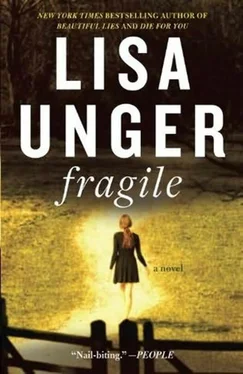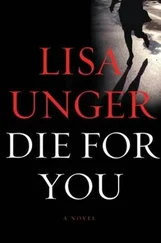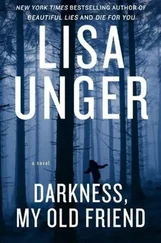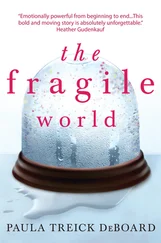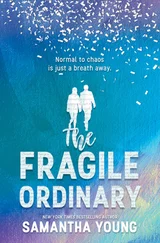He found Mrs. Monroe on the couch watching the news. On the screen, a picture of a missing girl-a pretty girl, thin with fair skin and jet hair, dark brown eyes. An assumed runaway. Police encourage anyone who has seen her to contact them immediately , a male voice-over declared grimly.
“Mrs. Monroe,” he said. The old woman gave a little jump of surprise. “I’m sorry. I didn’t mean to startle you.”
“Oh,” she said, pointing at the screen. “That girl, she’s a friend of my grandson’s. They’re all very worried. No one’s spoken to her since last night.”
“I’m sorry. I hadn’t heard the news today.”
The old woman pushed herself from the couch with effort, waving away his attempt to help her.
“Find anything up there?” she asked. When she finally rose, she steadied herself with her cane.
“Afraid not. I’ll come back tomorrow and check again.” Her shoulders seemed to sag a bit with disappointment; she drew in a weary breath.
“All right.” She handed him a rolled-up bill. “I appreciate it.”
“Oh, no-,” he started to decline. But she pushed the money into his hand.
At the door he said, “I hope she’s all right. Your grandson’s friend.”
“I do, too,” she said with a shake of her head. “She’s a troubled girl. Problems at home, I think.”
“I’m sure she’ll turn up.”
He wasn’t sure of this at all, of course. In high school, a friend of his-a girl friend he’d secretly loved-had run away. Lily. The memory of it caused a surprising catch of sadness in his throat. It was something he seldom thought about anymore, had willed away from conscious thought. No one ever saw her again. Ever. He didn’t share this with Mrs. Monroe.
It wasn’t until he was back in his truck and driving toward Wanda’s that Charlie remembered the girl he’d seen last night, the one with the punky hair who’d climbed into the old muscle car. Could it be the same girl? Should he call the police and say something?
Thinking about her standing there on the street, looking uneasily around her, caused him to remember Lily and that ugly, frightening time in his life. The memories were so vivid, so powerful-the smell of her skin, the sound of her voice, the fear, the dread, that indescribable unknowing. The sadness came on him so forcefully that he had to pull over on the shoulder of the highway and rest his head against the wheel. It was so many years ago, and there was still so much pain.
His phone rang then, startling him, and he answered it quickly.
“Hello.”
“Charlie?”
“Wanda.”
“Are you all right?”
“Yes,” he said, forcing brightness into his tone. “I’m just on my way. Sorry about that.”
“I’ll put the chicken in.”
There was something sweet, comforting about that sentence. Something that smacked of a domesticity he had craved without even realizing it. He let the feeling wash over him, rinse away the memories that had come back to call. He’d do what he’d planned, pick up some wine and some flowers and spend the evening with a beautiful woman who seemed to really like him. He’d tell her what he saw, ask her what she thought. Maybe he’d even tell her about Lily, a girl he’d loved a lifetime ago who haunted him still.
When his mother died, Jones had used all the emotions that rocketed through him to put on a powerful display of grief. What he felt, in fact, was a shuddering relief, as if at the easing of unbearable pain. He felt rage. He felt strangely unmoored, as though he’d been tied to his life only by the obligation he felt to care for his mother. But he did not feel grief. He would not miss her. Still, he might have been found weeping at her bedside in the hospital or at her graveside during the funeral. It wasn’t an act.
Poor Jones. He was so good to her. He spent his whole life caring for her .
He knew that’s what they all thought. It wasn’t true. He’d spent his whole life tending to her, appeasing her, pandering to her. These things were very different. Very different.
When his mother was buried and all the proceedings were finished and he was left alone for the first time in his life, the silence almost deafened him. It filled the house and washed over him. While Abigail had lived, there was never quiet. There was always her constant talking-gossiping, complaining, explaining, reprimanding, directing. And then there was the television, on morning, noon, and night, quiet only when he went into her room at night and turned it off after she fell asleep. Sometimes she’d wake up and turn it back on. He’d hear it when he got up in the night to use the toilet-the melodramatic strains of music from old movies, tinny laugh tracks.
He’d wondered if there was something wrong with him, not to feel grief for his mother. Maybe there had always been something wrong with him, maybe he lacked some human capacity to feel. Like now, for instance, as Melody Murray sat weeping (again) in his office, he felt nothing but a low-grade annoyance. She had the same aura about her as Abigail had, that self-dramatizing near hysteria, always seeking comfort and pity from those around her, giving nothing. Charlene had it, too, that willingness to cause any amount of discord and pain as long as it drew attention to herself. He’d wanted to explain it to Ricky, to tell him why he didn’t like the girl, but he found he didn’t have the words for it. Anyway, Ricky wouldn’t have listened. That kid had never listened to a word Jones had to say.
He’d watched as Maggie spent the day comforting and cajoling, trying to gently draw information from Charlene’s friends, their son, Melody, anyone who had any connection to Charlene. He’d felt relief that she was around for this. She could be all the things he was not-yielding, comforting, encouraging. Watching her, he had been reminded that Maggie was the one who’d saved him. If she hadn’t returned to The Hollows when she did-shortly after Abigail’s passing-if she hadn’t seen something in him to love, he wasn’t sure what would have happened to him.
His wife couldn’t have been more different from his mother; Mags was sensible, practical, giving, loving, understanding. Though Maggie would have hated to hear him say so, in those ways she was truly Elizabeth Monroe’s daughter. Although Maggie also possessed the soft gentility of her father, lacked Elizabeth’s hard edges and sharp tongue.
“Where’s Graham, Melody?” asked Jones. “Have you been able to reach him?”
She looked up at him sullenly. “No.”
There were a number of things bothering Jones. The fact that Graham was nowhere to be found was chief among them. The whole hunting thing just didn’t ring true, especially since none of the morons Graham usually hung around with had gone with him. Graham wasn’t the type to go off by himself in the woods and get meditative, to hunt and reflect. He was the type to go off into the woods with his buddies under the pretense of hunting and get drunk, pass out in the blind, never fire off a round.
Other things were bothering Jones, too. According to Charlene’s phone records, she hadn’t used her cell phone since late afternoon yesterday. Admittedly, the modern teenager was a bit of a mystery to Jones. But he did know one thing: they were wired together like the Borg, constantly calling, e-mailing, texting, social-networking. If Charlene was involved in some kind of drama that led her to run away, she’d have called or sent text messages to everyone .
Then he’d discovered that the credit card attached to Charlene’s mobile account was in Graham’s name. Graham had purchased that phone for her, paid the bill every month, even though her mother didn’t know and hadn’t wanted her to have one. But Charlene had told everyone who’d listen that she was afraid of him, that he was “inappropriate” with her. It was a word all her friends and even Ricky had used independently of one another, as if she’d told them each precisely the same thing, using the same phrasing. Which didn’t mean it wasn’t true. He could see the potential in Graham, especially as Charlene grew older, her beauty eclipsing Melody’s completely. Still, if it was true, and Graham was using gifts to manipulate his relationship with Charlene, and now they were both missing, what did it mean?
Читать дальше
